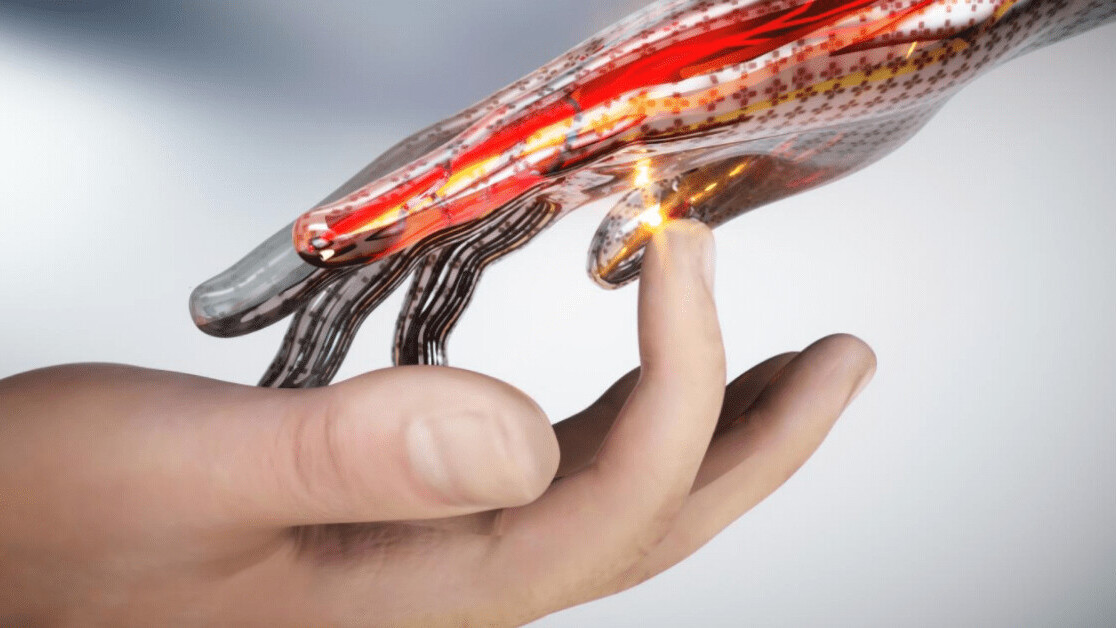
A new electronic skin that reacts to pain like humans could provide the foundations for better prosthetics, smarter robots, and non-invasive alternatives to skin grafts, according to the device’s inventors.
The artificial skin was developed by scientists from RMIT University in Australia, who claim it reacts to painful sensations as quickly as it takes nerve signals to reach the brain.

Lead researcher Professor Madhu Bhaskar said the feedback system could pave the way for next-generation biomedical technologies and intelligent robotics.
We’re sensing things all the time through the skin but our pain response only kicks in at a certain point, like when we touch something too hot or too sharp. No electronic technologies have been able to realistically mimic that very human feeling of pain – until now. Our artificial skin reacts instantly when pressure, heat, or cold reach a painful threshold. It’s a critical step forward in the future development of the sophisticated feedback systems that we need to deliver truly smart prosthetics and intelligent robotics.
[Read: These tech trends defined 2020 so far, according to 5 founders]
The researchers built their prototype devices by combining stretchable wearable electronics, temperature-reactive coatings, and electronic memory cells that mimic the way the brain recalls and retains information.
These three technologies enable the skin to react when pressure, heat, or pain hits a certain threshold.
“While some existing technologies have used electrical signals to mimic different levels of pain, these new devices can react to real mechanical pressure, temperature and pain, and deliver the right electronic response,” said researcher Md Ataur Rahman.
“It means our artificial skin knows the difference between gently touching a pin with your finger or accidentally stabbing yourself with it – a critical distinction that has never been achieved before electronically.”
You can check out their research paper at the Wiley Online Library.
So you’re interested in AI? Then join our online event, TNW2020, where you’ll hear how artificial intelligence is transforming industries and businesses.
Get the TNW newsletter
Get the most important tech news in your inbox each week.




